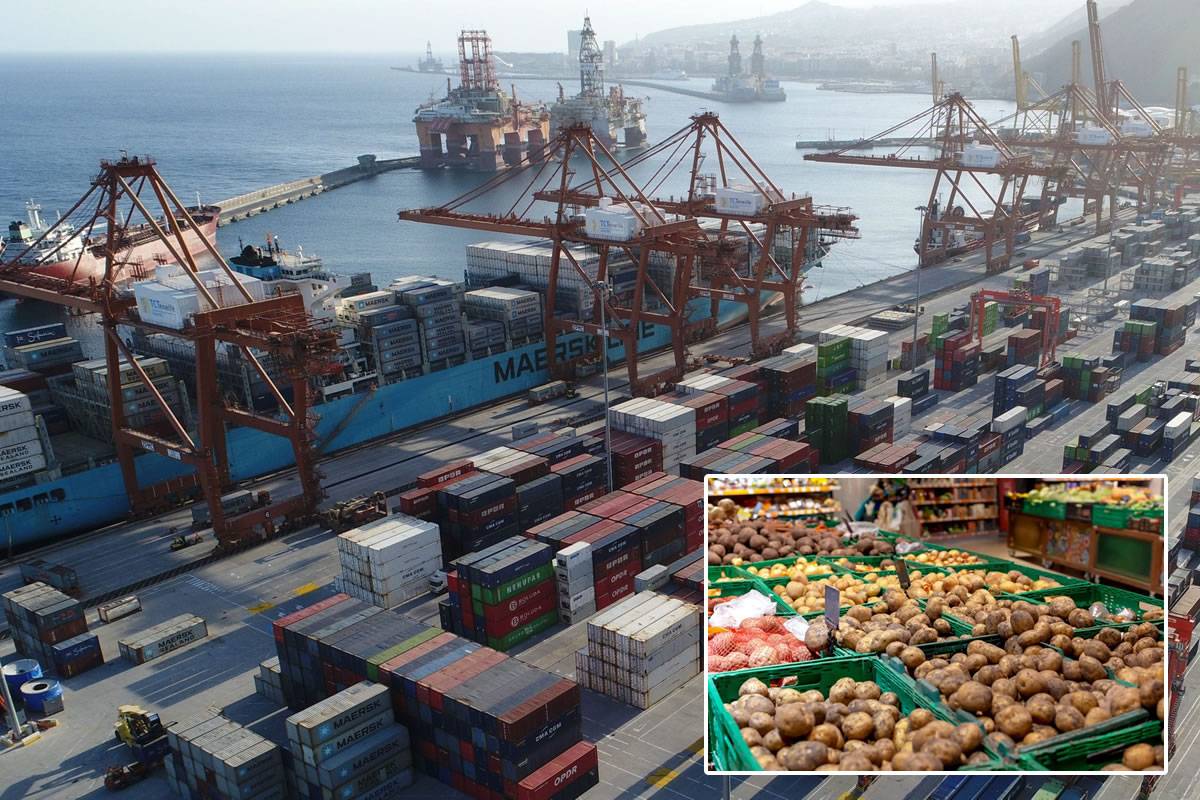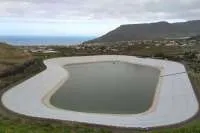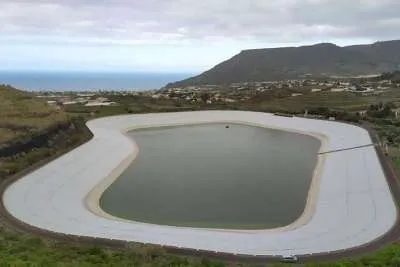Potato imports from the UK delayed due to lack of inspection staff at ports
- 17-10-2023
- Tenerife
- Canarian Weekly
The requirement to inspect all potatoes arriving in the Canary Islands from the United Kingdom, after lava from red Colorado beetles was detected a couple of months ago, which led to the suspension of British potato imports and was only resolved with strict phytosanitary measures at the source, is causing huge problems at the ports of Las Palmas demGran Canaria and Santa Cruz de Tenerife.
British potatoes began re-entering the archipelago three weeks ago, at an average rate of 20-30 containers per week. In the UK, farmers are required to comply with various measures, including cleaning the potatoes and limiting the percentage of soil that can accompany the potatoes to less than 1% when entering the islands.
Once they reach the Canary Islands, it is mandatory for the containers to pass through the Border Inspection Point (PIF) to ensure compliance with the requirements imposed by the Canary Islands, with the approval of the Ministry of Agriculture, which sets the instructions.
The lack of personnel at the PIFs is causing some of the containers sent for inspection to return to the terminals when their staff's working day ends, without having undergone inspection.
The measures established by the Canary Islands for British potatoes are temporary and will be applied "until the United Kingdom is free from the spread of the plague detected in Kent," as stated by the Minister of Agriculture, Narvay Quintero, a few days ago.
Importers are hopeful that the Ministry of Health will take steps to expedite controls at the PIFs of the two main ports in the islands and unblock the entry of potatoes into the archipelago.
In addition to inspections upon arrival in the Canary Islands, British producers are required to take a series of measures at source. This includes labelling that must not only have potato-specific information but also traceability to identify the producer and the production area down to the plot they were grown in.
Moreover, seed potatoes must be bagged in new sacks with a maximum capacity of 25 kilograms, sealed, and labelled in suitable facilities. Potatoes intended for consumption must be stored in containers weighing a maximum of 1.5 tonnes.



























































